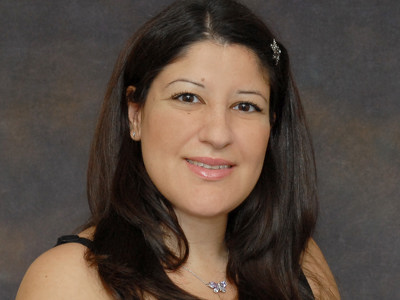Better care would have given two-year-old Finlay Roberts from London “a chance” at survival, coroner concludes
A coroner said that had two-year-old Finlay Roberts received better care from the Whittington Hospital, Islington, he would have had “a chance” at survival.
Posted on 03 July 2025

Senior Coroner for Inner North London, Mary Hassell recorded a narrative conclusion following a one-day inquest at St Pancras Coroners Court.
While acknowledging that it was unclear whether Finlay’s life could have been saved, she said “it would have given him a chance” if hospital care had been delivered as it should have been. Finlay died from a twisted bowel condition – sigmoid volvulus – which the coroner said was “a rare (in a child) but recognised natural cause”.
Now Ms Hassell has issued a prevention of future deaths (PFD) report, raising concerns that a lack of serial nursing observations was a fundamental omission from Finlay’s care.
Data collected for 2023 shows that only 1% of all inquests in England and Wales concluded with a PFD report, highlighting the seriousness of Ms Hassell’s concerns.
The following factors were also noted in the circumstances of Finlay’s death: “not all tests were carried out as appropriate; and, though specialist advice was sought from Great Ormond Streed, the late arrival of X-rays, a lack of complete information and a failure to close the loop of communication meant that advice was not obtained before Finlay was discharged home”.
Finlay was unable to have scans because they were unavailable out of hours at Whittington Hospital. His parents’ requests for a transfer to Great Ormond Street where the tests would have been available were not granted.
The 16 June 2025 inquest into Finlay’s death was told that he was taken to the Whittington Hospital’s Paediatric A&E department on the advice of the family GP after he woke with tummy ache on the morning of 11 July 2024.
Finlay’s dad, David Roberts, said he remembered attending the north London hospital emergency department that afternoon and described his experience as the “stuff of nightmares”, being left to spend “nine hours sitting on chairs” in the corridors. It was so busy, David says that “key examinations” were being carried out in the corridors while Finlay was sitting on his knee. The coroner noted that “the paediatric emergency department was understaffed”. Elizabeth and David asked for a transfer to Great Ormond Street on multiple occasions to access tests the Whittington were unable to provide – but were rebuffed.
The inquest was told that during Finlay’s time in the Emergency Department from 4.15pm on 11 July 2024 until he was discharged at around 1am on 12 July 2024, he didn’t have full observations done, with only one partial set of observations completed throughout the whole nine hours. This is despite doctors telling the inquest that observations should be done at least every four hours in the Emergency Department. Finlay was ultimately discharged without observations being taken. Records show Finlay was sent home at around 1am the following morning, with advice to return the next day.
However, at around 8am, Finlay’s mother Elizabeth woke up to a crackling noise. Finlay was lifeless in the bed next to her and not breathing. She immediately called in David, Finlay’s father who desperately tried to resuscitate him. These efforts were continued by paramedics and later doctors at the Whittington Hospital where his death was recorded as 12 July 2024 – exactly a month before his third birthday.
In her PFD report, the coroner noted that she had raised similar concerns over a lack of regular paediatric nursing checks following the inquest in March 2025 into the death of 16-year-old Billie Wicks at the Royal Free Hospital 15 September 2024.
Ms Hassell said she recorded two issues as “matters of concern”:
- A lack of nursing observations may be a much wider issue than is recognised. In my experience there is nothing about the Whittington and the Royal Free that stands out as unusual.
- The medical staff at the Whittington did not recognise the lack of nursing observations: Observations were thought to be acceptable because they were not reported as otherwise, when in fact they were absent; the discharging doctor decided that, if his final observations were normal Finlay could go home. Those observations were never carried out, but Finlay was nevertheless discharged.
Maria Panteli, partner and Lucie Wallbridge, a solicitor from the medical negligence team at Leigh Day, represent Elizabeth and David Roberts.
Finlay’s parents, David and Elizabeth Roberts, said:
“We are simply devastated by Finny’s death. He was the happiest and most loved of little people. Our lives will never be the same. We remain thankful for the nearly three years we had with him they were filled with joy and happiness. We desperately wish there could have been more.
“We have set up ForFinny.com to raise money for charities in his memory.”
Leigh Day partner Maria Panteli said:
"Elizabeth and David Roberts have shown remarkable courage as they have navigated this difficult process.
"Finlay’s death has shone a light on the importance of serial nursing observations and highlighted staffing issues within the Whittington’s paediatric emergency department.
"In response to Finlay’s death, we understand the Whittington has since hired more nursing staff. In light of the coroner’s Prevention of Future Deaths Report, we hope that a thorough review of practices and policies at the Whittington may serve to prevent similar instances occurring."
Maria instructed counsel Rajkiran Arhestey from 1 Crown Office Row Chambers.
Whittington Health NHS Trust said that it is “determined to learn from the heartbreaking events around Finlay’s death”.




